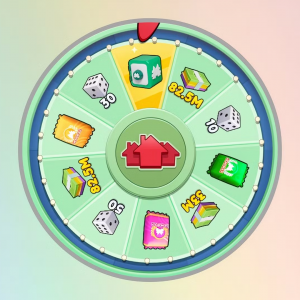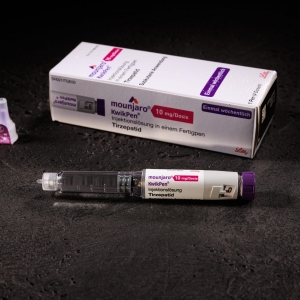The scratching in your attic has finally stopped. The wildlife exclusion company has successfully removed the raccoon family that took up residence in your eaves. You breathe a sigh of relief, thinking the problem is solved. But what you can't see are the potential hazards left behind—the urine, droppings, parasites, and biological contaminants that now linger in your home. This invisible threat represents the next critical phase of addressing wildlife intrusions, one that many homeowners overlook with potentially serious consequences.
When wild animals invade our living spaces, they bring more than just noise and structural damage. They leave behind biological hazards that can affect your family's health and your home's safety long after the animals are gone. This is where professional wildlife sanitization services become essential, providing the crucial final step in restoring your home to a safe, healthy, and truly clean condition.
The Unseen Dangers Left Behind by Wildlife
Wild animals, while fascinating in their natural habitats, create serious problems when they take up residence in human dwellings. The dangers they leave behind aren't always visible to the untrained eye, making professional sanitization not just recommended but necessary.
Health Hazards from Droppings and Urine
Animal waste is more than just unpleasant—it's potentially dangerous. Different species present different risks:
Raccoon roundworm, found in raccoon feces, can cause serious neurological damage in humans if the eggs are accidentally ingested or inhaled during cleanup. The eggs become infectious after 2-4 weeks and can survive in soil for years, making proper removal critical.
Squirrel and rodent droppings can contain salmonella and leptospirosis bacteria, which can contaminate surfaces and air quality. As these droppings dry, they can become powdery and circulate through your HVAC system, spreading contaminants throughout your home.
Bat guano poses its own unique dangers, including the potential for histoplasmosis, a respiratory disease caused by fungus that grows in accumulated droppings. Disturbing large accumulations without proper protection can release fungal spores into the air.
Parasites and Insects
Wild animals often bring uninvited guests with them. Fleas, ticks, and mites can remain active long after the host animals have been removed. These parasites don't just bite—they can transmit diseases to both humans and pets.
Bird mites, for instance, can survive for weeks without their avian hosts and may bite humans, causing itchy skin irritations. Similarly, fleas from raccoons or opossums can infest your home and require specific treatments to eliminate completely.
Structural Damage and Odors
Beyond health concerns, wildlife residues can cause lasting damage to your home. Animal urine can seep into insulation, drywall, and wood beams, leading to persistent odors and structural weakening over time. The strong scent of urine can also attract other wildlife to the area, creating a cycle of infestation.
The Professional Sanitization Process: More Than Just Cleaning
Professional wildlife sanitization goes far beyond standard cleaning services. It's a comprehensive process designed to address all aspects of contamination left behind by animal intruders.
Assessment and Safety Preparation
The process begins with a thorough inspection to identify all contaminated areas. Professionals use specialized equipment, including moisture meters and UV lights, to detect urine and droppings that aren't visible to the naked eye. They then establish containment areas to prevent cross-contamination to clean parts of your home during the cleanup process.
Safety is paramount throughout this process. Technicians wear appropriate personal protective equipment (PPE), including respirators, gloves, and disposable coveralls, to protect themselves and prevent tracking contaminants through your home.
Removal and Disposal of Contaminated Materials
Porous materials that have been heavily contaminated often cannot be adequately sanitized and must be removed. This includes:
- Insulation that has been soiled by urine or droppings
- Damaged drywall or ceiling tiles
- Contaminated personal items that cannot be effectively cleaned
Professional services follow strict protocols for disposing of these materials, treating them as biological hazards rather than regular household waste.
Deep Cleaning and Sanitization
This is the core of the sanitization process. Professionals use hospital-grade disinfectants and specialized cleaning agents that are effective against the specific pathogens found in animal waste. These products are typically more powerful than consumer-grade cleaners and require proper application to be effective.
The cleaning process includes:
- Scrubbing and disinfecting all hard surfaces
- Treating affected wooden beams and structures
- Using enzyme-based cleaners to break down organic matter and eliminate odors at their source
- Applying treatments specifically designed to eliminate parasites and their eggs
Deodorization and Restoration
Eliminating odors is crucial, as lingering animal scents can attract new wildlife to your home. Professionals use ozone treatments, hydroxyl generators, or other advanced deodorizing methods to neutralize odors rather than just masking them.
The final step involves restoring the treated areas to their original condition. This may include installing new insulation, replacing drywall, and making necessary repairs to ensure your home is not just clean but fully functional and restored.
The Value of Professional Expertise
Attempting wildlife sanitization as a DIY project might seem cost-effective initially, but it carries significant risks and limitations that make professional services the wiser choice.
Proper Equipment and Products
Professional companies have access to industrial-grade equipment and cleaning solutions that aren't available to consumers. From HEPA-filtered vacuum systems that capture fine particulate matter to fogging machines that distribute disinfectants evenly throughout affected areas, this specialized equipment makes a significant difference in the quality and thoroughness of the sanitization.
Knowledge of Species-Specific Risks
Different animals present different contamination profiles. Professionals understand these differences and tailor their approach accordingly. They know, for instance, that bat guano requires different handling than raccoon droppings, and that squirrel infestations present different parasite risks than bird nests.
Comprehensive Approach
Perhaps most importantly, professional services address the full scope of contamination. While a homeowner might clean visible droppings, they're likely to miss urine that has soaked into insulation or parasites hiding in wall voids. Professionals have the training to identify and address all contamination sources, not just the obvious ones.
Protecting Your Family and Investment
The benefits of professional wildlife sanitization extend beyond simply having a cleaner home. They encompass health protection, property preservation, and peace of mind.
Health Protection for Vulnerable Family Members
Children, elderly individuals, and those with compromised immune systems are particularly vulnerable to the pathogens left behind by wildlife. Proper sanitization reduces their risk of exposure to dangerous bacteria, viruses, and parasites, helping you maintain a healthy home environment.
Prevention of Future Infestations
By thoroughly eliminating animal scents and restoring entry points, professional sanitization makes your home less attractive to new wildlife looking for shelter. This breaks the cycle of infestation that can occur when odors from previous occupants signal that your property is a potential habitat.
Preservation of Property Value
The damage caused by wildlife contamination can significantly impact your home's value if left unaddressed. Soaked insulation loses its R-value, structural elements can weaken, and persistent odors can make properties difficult to sell. Professional sanitization protects your investment by addressing these issues comprehensively.
Peace of Mind
Perhaps the most valuable benefit is the confidence that comes from knowing your home has been properly restored. The anxiety of wondering what might be lurking in your attic or walls is replaced by the assurance that professional wildlife sanitization services Richmond have returned your home to a safe, healthy condition.
When wildlife invades your home, removal is only half the solution. The contaminants they leave behind require specialized knowledge, equipment, and techniques to address effectively. By investing in professional wildlife sanitization, you're not just cleaning up after unwanted guests—you're protecting your family's health, preserving your property's value, and restoring your peace of mind. In a region like Richmond where human-wildlife interactions are common, having access to reliable wildlife sanitization services Richmond ensures that when nature gets too close for comfort, you have the expertise needed to make your home safe and healthy once again.






